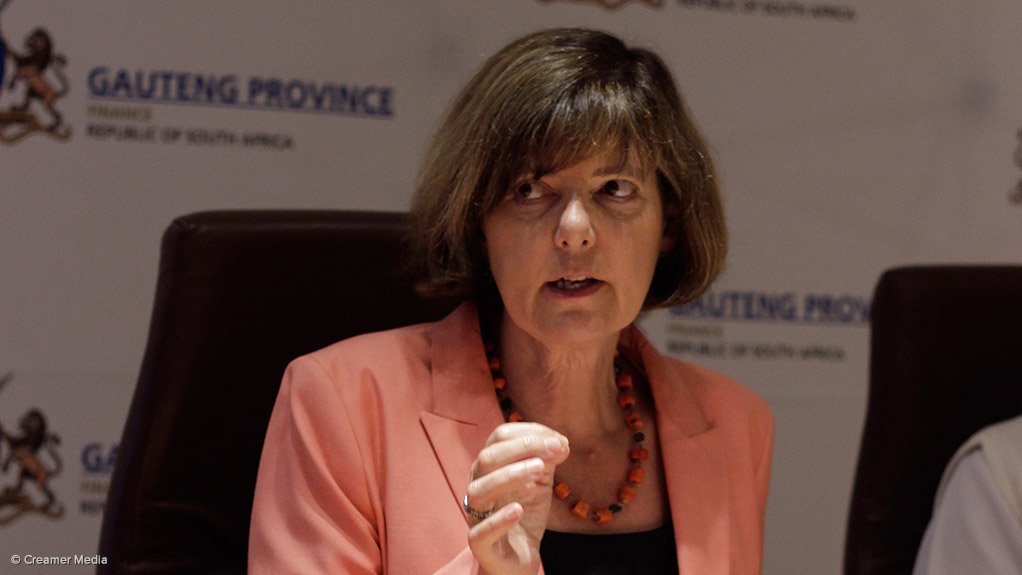Throwing open a process often criticised for its lack of transparency and frequent irregularities, the Gauteng Provincial Government (GPG) for the first time on Wednesday opened the adjudication of a tender to the public, describing it as an effort to improve transparency when awarding contracts in the province.
This followed the launch of the province’s pilot open tender process by Gauteng Finance MEC Barbara Creecy in November last year, which she said would improve the transparency of the provincial tendering process, in line with supply chain management provisions of the Public Finance Management Act.
The Gauteng Department of Roads and Transport (GDRT) tender, which entailed the upgrade of a portion of Cedar Road, in Johannesburg, saw submissions from 12 local construction firms, all of which submitted bids by January 20.
As part of the pilot process, the tender box was thereafter immediately opened in public, after which the bids were registered and imprinted and the contract prices, which ranged between R70-million and R100-million, announced.
The GDRT’s Bid Evaluation Committee (BEC), advised by Provincial Treasury, then conducted an initial screening of the bids, followed by an evaluation of each bid’s functionality, as well as an assessment each company’s ability to deliver on the tender requirements.
During Wednesday’s open adjudication meeting at the Ekurhuleni Council Chambers, the BEC presented its recommendation to award the tender to Power Construction to the Bid Adjudication Committee (BAC), which endorsed this recommendation and referred it to GDRT head Ronald Swartz for a final decision.
According to the BEC, Power Construction, whose contract price was R96-million, was the only bidder that fulfilled the tender’s various financial, functional and empowerment requirements.
An independent probity team audited the entire tendering process and delivered a report that formed part of the documents presented to the BAC on Wednesday.
Creecy, who attended the public adjudication of the tender along with Roads and Transport MEC Ismail Vadi, told Engineering News Online after the adjournment that she was “extemely excited” that the province’s first open tender adjudication had been successfully concluded, describing it as a “dawn of a new degree of openess” by the GPG.
“This is a learning curve for Provincial Treasury and we are learning a lot about sticking to the terms and conditions [of the tender] and about training our supply-chain institutions.
“The aim here is to enhance transparency and minimise subjective decision-making,” she said.
Creecy’s comments came after the BAC had recommended that specifications be improved and evaluation criteria clarified when the specifications were advertised.
It further ackowledged that the element of subjectivity by BEC members during the evaluation of bids needed to be addressed.
“We need to tighten up on our criteria and…ensure that any subjectivity in the scoring doesn’t skew the outcome,” noted the committee.
Creecy added that the GDRT and the Gauteng Department of Infrastructure Development would now reflect on the tender process and include their evaluations of this process in a Revised Open Tender Policy.
This policy would be submitted to the Gauteng Executive Council for adoption so that it could be rolled out across provincial government during the current five-year term.
Vadi, meanwhile, told Engineering News Online that the pilot process further articulated the importance of ensuring that adequate specifications for each project – including estimates of costs and time – needed to be completed prior to the tender being advertised.
“We will draw lessons from this once the final decision is made. We must tighten up on the procedures. This is because the overall objective of this pilot is to enhance transparency to get greater certainty into the process.
“The greater the certainty, the more objective the process can be and this means less subjectivity in things like scoring for various bids. We must minimise the possibility for subjective decision-making and have a process that is more objective and more open to scrutiny, more understandable and, therefore, more transparent,” he concluded.
EMAIL THIS ARTICLE SAVE THIS ARTICLE
To subscribe email subscriptions@creamermedia.co.za or click here
To advertise email advertising@creamermedia.co.za or click here











